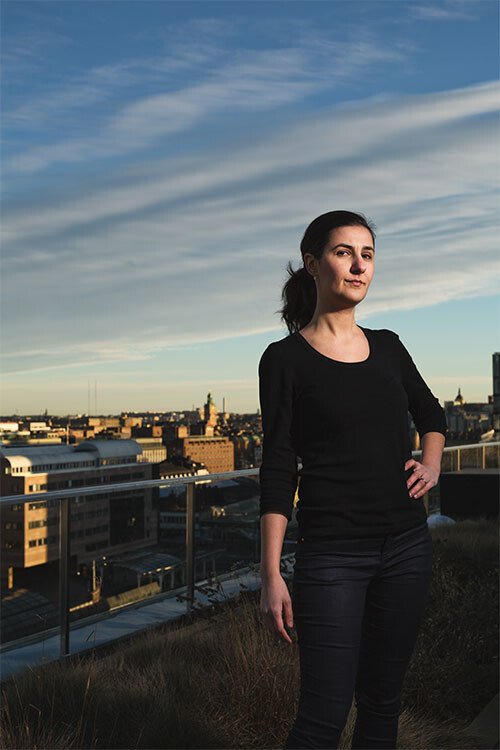"The life my parents had built up was demolished"
Negra Efendic and her family fled to Sweden from the former Yugoslavia. Her parents were initially relieved to have made it out alive. But they received no help in dealing with their trauma.
Name: Negra Efendic
Age: 36
Profession: Journalist at Svenska Dagbladet, with a focus on migration and integration issues. Won the Swedish Grand Prize for Journalism 2016 with her book “Jag var precis som du” [I was just like you] in which she writes about her family's escape from the former Yugoslavia.

As told to Cecilia Odlind, first published in the magazine Medical Science no 1, 2017.
“I only packed a small bag when my grandmother and I left our village. After all, I’d be back in a week. But it soon became clear that all-out war had broken out. For a time, I didn’t know if my parents were alive. Not even when I later saw the two figures I’d missed for so long walking towards me, with plastic bags as their only luggage, did I dare to believe that it was for real.
Eventually, the family came to Sweden, without any assets at all. The first year, we were still relieved at having made it out of the war alive. It wasn't until we’d been placed in a municipality and were to begin living normally that a lot of unprocessed memories from our home country hit both my parents. Then they couldn’t really function. The feeling of gratitude was also mixed with difficulties accepting that all the life they’d built up was demolished and would never come back. That's how it was for a great many people that I knew.
Both my parents were given antidepressant medication, but no other help. I’ve asked my friends who had been in concentration camps and had been locked up, tortured and daily feared for their lives. None of them have been offered help to process their traumatic experiences. How is that possible?
Helping them would not only benefit the individuals themselves but also society as a whole. Newly arrived people are expected to quickly learn Swedish, find a job and get into society. But this is in a period when you’re often not functioning as a person. It's difficult to concentrate on your Swedish homework when you’ve got serious mental problems, like many who’ve seen war get. Expecting all these people to function from day one is unrealistic, I think.
Much later, I spent several years working as an authorised interpreter in healthcare. There, I saw many examples of people who don’t know the language not receiving the healthcare and help they are entitled to. That is not okay. It is not only unfair, but is also an economic disadvantage for society. More research is needed to investigate which factors lead to such discrimination.
I also believe that it’s important to understand that healthcare works differently in different countries. This means an obvious risk of cultural clashes. In my home country, getting a migraine meant calling an ambulance. The same when it was time to give birth. Colds were treated with antibiotics. When you expect the same treatment in Sweden, it's not that you’ve been spoiled or that you're stupid, it's just that you're used to something totally different. We need to explain to newly arrived people how healthcare works in Sweden. This can be done through ordinary conversations between people. But I also believe that healthcare needs to be more sensitive to this.
We have our Sweden together. It then has to be as good as possible for everyone. Inequality affects us all.”
 Photo: Foto: Getty images
Photo: Foto: Getty images